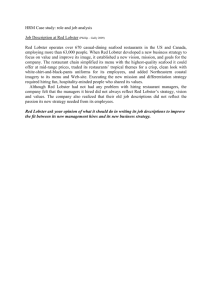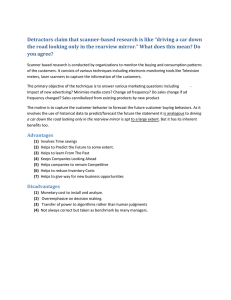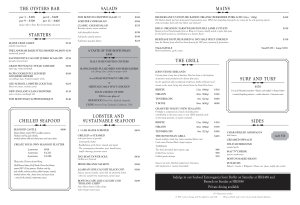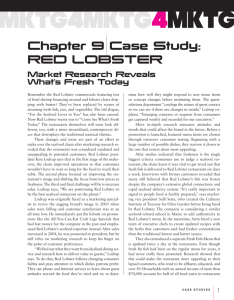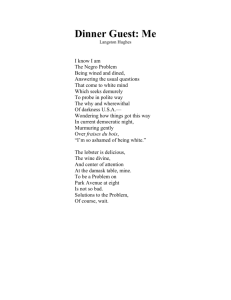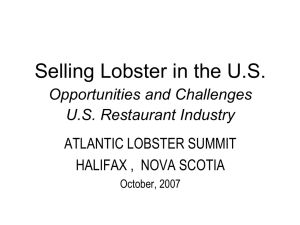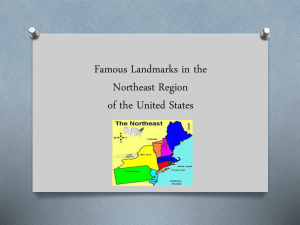So far the makeover is working. Red Lobster
advertisement
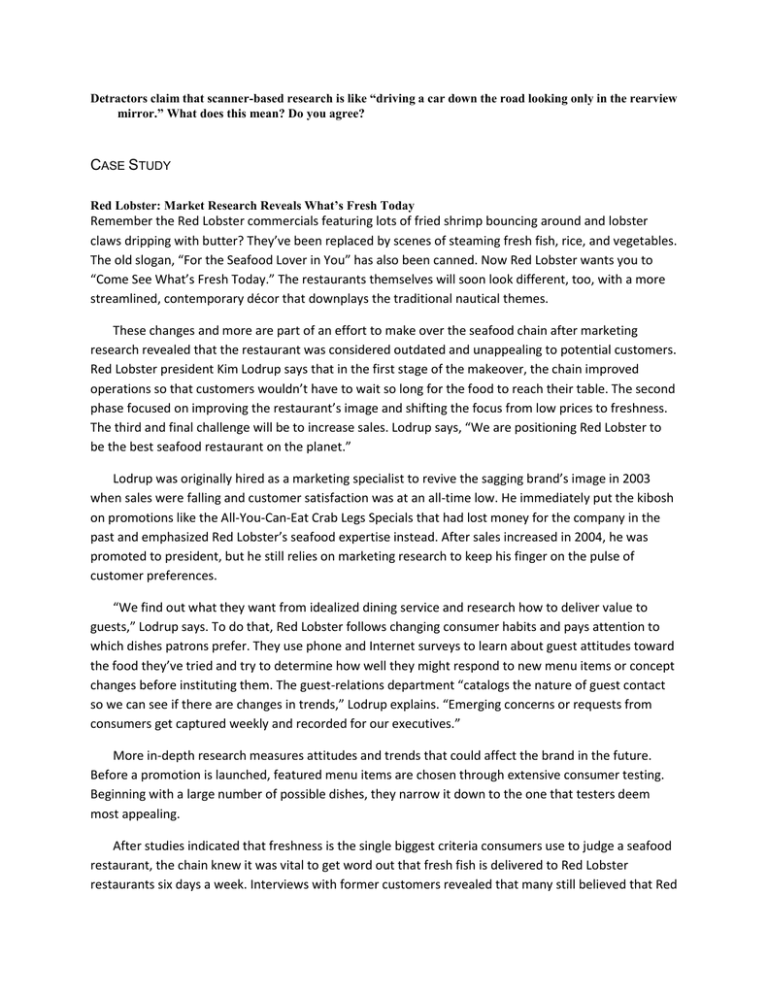
Detractors claim that scanner-based research is like “driving a car down the road looking only in the rearview mirror.” What does this mean? Do you agree? CASE STUDY Red Lobster: Market Research Reveals What’s Fresh Today Remember the Red Lobster commercials featuring lots of fried shrimp bouncing around and lobster claws dripping with butter? They’ve been replaced by scenes of steaming fresh fish, rice, and vegetables. The old slogan, “For the Seafood Lover in You” has also been canned. Now Red Lobster wants you to “Come See What’s Fresh Today.” The restaurants themselves will soon look different, too, with a more streamlined, contemporary décor that downplays the traditional nautical themes. These changes and more are part of an effort to make over the seafood chain after marketing research revealed that the restaurant was considered outdated and unappealing to potential customers. Red Lobster president Kim Lodrup says that in the first stage of the makeover, the chain improved operations so that customers wouldn’t have to wait so long for the food to reach their table. The second phase focused on improving the restaurant’s image and shifting the focus from low prices to freshness. The third and final challenge will be to increase sales. Lodrup says, “We are positioning Red Lobster to be the best seafood restaurant on the planet.” Lodrup was originally hired as a marketing specialist to revive the sagging brand’s image in 2003 when sales were falling and customer satisfaction was at an all-time low. He immediately put the kibosh on promotions like the All-You-Can-Eat Crab Legs Specials that had lost money for the company in the past and emphasized Red Lobster’s seafood expertise instead. After sales increased in 2004, he was promoted to president, but he still relies on marketing research to keep his finger on the pulse of customer preferences. “We find out what they want from idealized dining service and research how to deliver value to guests,” Lodrup says. To do that, Red Lobster follows changing consumer habits and pays attention to which dishes patrons prefer. They use phone and Internet surveys to learn about guest attitudes toward the food they’ve tried and try to determine how well they might respond to new menu items or concept changes before instituting them. The guest-relations department “catalogs the nature of guest contact so we can see if there are changes in trends,” Lodrup explains. “Emerging concerns or requests from consumers get captured weekly and recorded for our executives.” More in-depth research measures attitudes and trends that could affect the brand in the future. Before a promotion is launched, featured menu items are chosen through extensive consumer testing. Beginning with a large number of possible dishes, they narrow it down to the one that testers deem most appealing. After studies indicated that freshness is the single biggest criteria consumers use to judge a seafood restaurant, the chain knew it was vital to get word out that fresh fish is delivered to Red Lobster restaurants six days a week. Interviews with former customers revealed that many still believed that Red Lobster’s fish was frozen despite the company’s extensive global connections and rapid seafood delivery system. “It’s really important to signal to people food is freshly prepared,” says marketing V.P. Salli Setta, who created the Culinary Institute of Tuscany for Olive Garden before being hired by Red Lobster. The company is considering a similar seafood-related school in Maine to add authenticity to Red Lobster’s menu. In the meantime, Setta hired a new team of executive chefs to create updated recipes with the herbs that customers said had fresher connotations than the traditional lemon and butter sauces. They also introduced a separate Fresh Fish Menu that is updated twice a day at the restaurants. Even though fresh fin fish had been on the regular menu for years, it had never really been promoted. Research showed that this could make the restaurant more appealing to their lapsed customers, who tend to be affluent, educated, and over 50. Households with an annual income of more than $70,000 account for half of all food eaten in restaurants and have been shown to be most interested in seafood dining. Reeling these customers back in has become a top priority in the chain’s turnaround. So far the makeover is working. Red Lobster has been reporting same-store sales increases since 2004. Improvements in operations and other cost controls led to the highest operating margin in Red Lobster history and, Lodrup reports, “Every measure of guest satisfaction is at a record level.” However, it continues to be a challenge for the chain to change old perceptions of itself. As one surveyed customer put it, “My wife swears by the fish. She just can’t get her friends to try it.” 1. Why do you think Red Lobster relies so much on Internet surveys to track customer opinions, preferences, and criticisms? What are the advantages of online questionnaires versus traditional surveys conducted over the phone or through the mail? (Jacob, Minnick) 2. Go to www.redlobster.com and click around. How well do you think the site appeals to the educated, affluent, and over-50 crowd that the chain wants to reel in? What are the primary messages that it communicates about the restaurant, and how effective are they? How does the site attempt to capture information about its customers? (Nye, Patterson, Robbie) 3. Red Lobster’s closest competitor in the seafood-dining business is Joe's Crab Shack. Check out their Web site at www.joescrabshack.com and compare it to Red Lobster’s. How does their marketing approach differ? Do you think they’re appealing to the same types of customers? How does the Web site try to get information from its customers? (Thieme, Uglow) 4. Suppose Red Lobster was wondering how well its new interior design was being received by customers at a redecorated restaurant in Columbus, Ohio, and hired you to create a questionnaire. Write one of each: an open-ended question, a closed-ended question (either dichotomous or multiple choice), and a scaled-response question.
